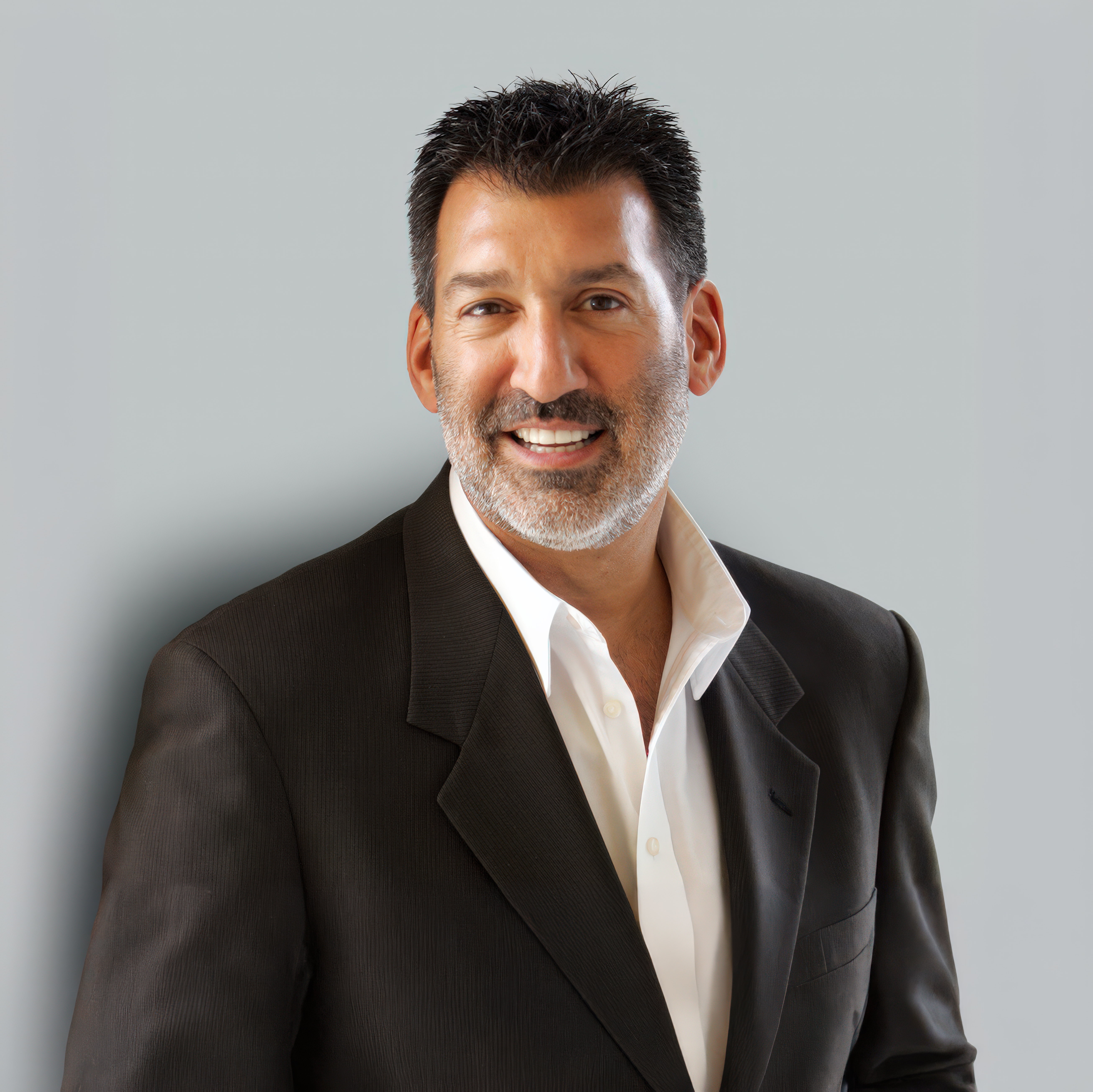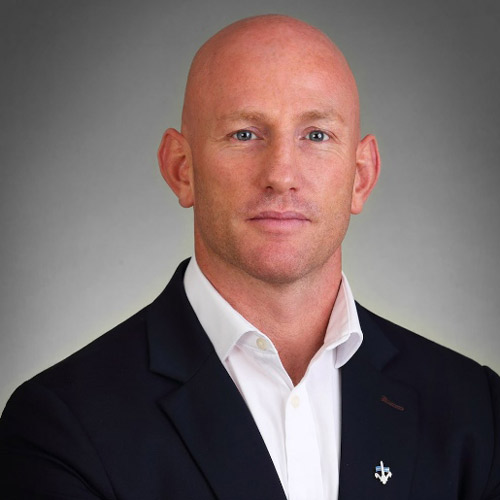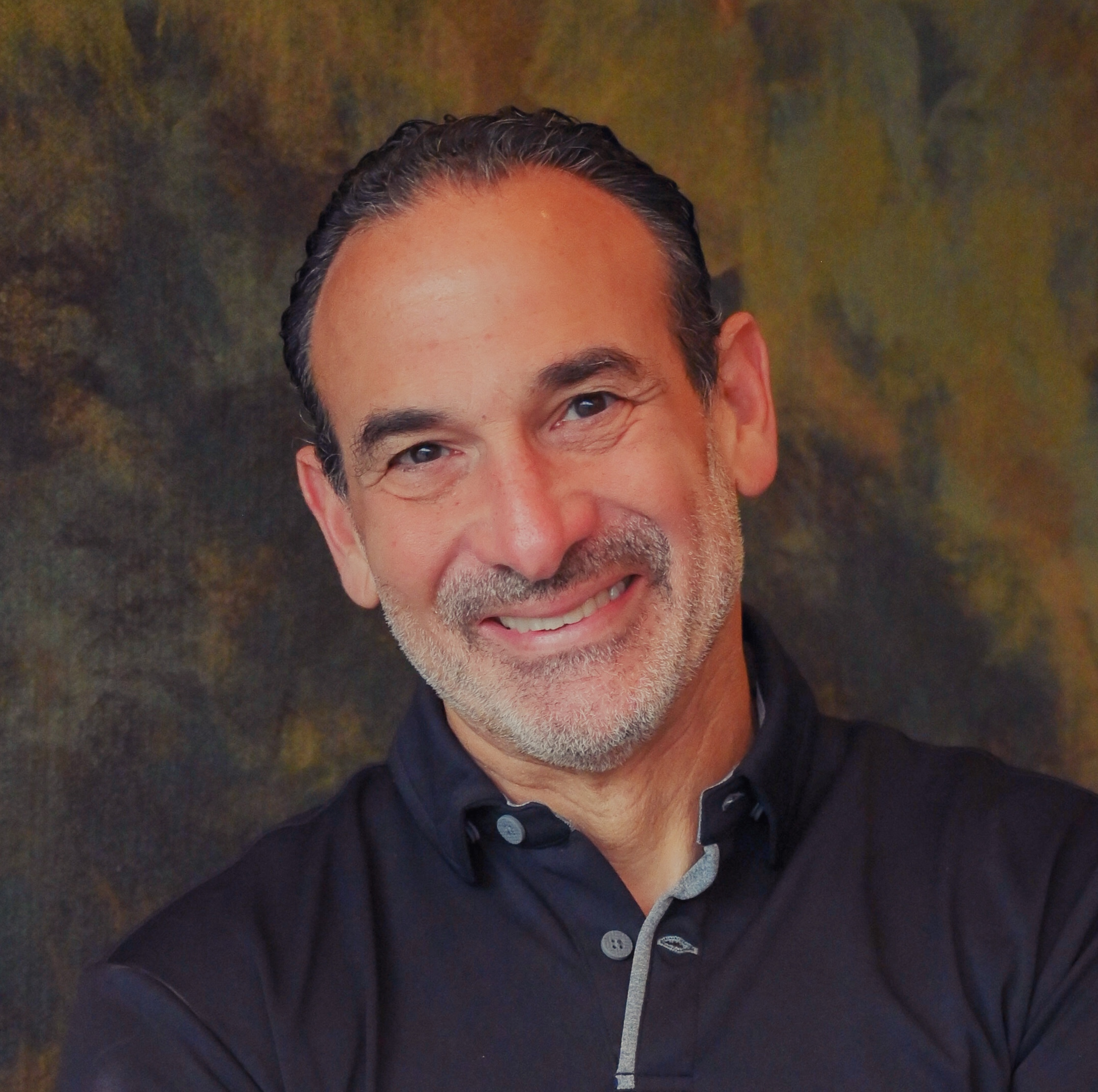Hey brand builder Rory Vaden here. Thank you so much for tuning in to listen to this interview. We are so excited to bring you this information and wanted to let you know that, Hey, there’s no sales pitch coming from anything that we do with this is all our value add to you and the community. However, if you are somebody who is looking for specific strategies on how to build and monetize your personal brand, we would love to talk to you and we offer a free call to everyone that’s interested in getting to know us and is willing to give us a chance to get to know them and share a little bit about what we do. So if you’re interested in taking us up on a free strategy call, you can do that at brand builders, group.com/summit call brand builders, group.com/summit. Call, hope to talk to you soon on with the show.
So excited to introduce you to someone who I think is one of the top thought leaders in the world today in his space. In fact, AGA was asking me you know, she’s like, I know I’ve heard of Neil Patel. And I said, well, he’s basically the world’s top thinker on SEO search engine optimization, as well as a number of other, you know, digital marketing related initiatives, which we’re going to talk about today. If you have never met him, he is a New York times bestselling author of, of a called hustle. He hosts the marketing school podcast with his pal, Eric, it’s a fantastic podcast. It’s super short every day. And they you know, the cover of variety of different topics. I’ve, I’ve been listening here in the last few months, pretty much on on repeat, but he also is the founder of a company called crazy egg and a tool, a tool called crazy egg, which we maybe will talk about.
And then Uber suggest which some of you, even if you don’t recognize Neil, you’ve probably used Uber suggest, which we will talk about. So anyways by our mutual friend, Jay Baer’s who connected me and Neil, welcome to the show. It’s good to meet you. Thanks for having me. Yeah. It’s rare that I have people on that. I don’t know personally, but even though you are just meeting, you know, I’ve been I’ve been a fan of your stuff for a while and I thought your expertise, clearly it would be relevant to our audience. And I, I want to start just right inside of search engine optimization specifically for personal brands. And I would say, you know, a lot of our audience, you know, they know what search engine optimization is, but they easily get overwhelmed by it. They’re not highly technical people that most of our audiences more mission-driven messengers is what we call them.
And you know, of course the 2080 rule says that, you know, 20% of your activities will return 80% of the results. If I’m a personal brand and I’ve got like a, a blog, you know, or a podcast, what do you, what are the what’s kind of the 20%, you know, the fundamentals of SEO that today, like in the current time, I need to make sure I’m doing this with my site, with my posts every week. And if it’s like, if I just do these few things consistently for the term, it’ll work out. Maybe not like the most Ninja stuff, but like, what’s the core fundamentals I have to nail.
So the big one is just posting content. You know, the, the biggest thing that you find is people posts or content or two. And then they’re just like, Oh, this is a lot of work. You gotta be consistent and you gotta keep doing, and you gotta do it for like a year, literally a year. And you gotta be consistent like three times a week for a year. And if you do that, you’ll start seeing results. But what most people don’t realize is, is stuff on the web. When you post content it’s hit or miss, whether it’s an image on Instagram or a blog post, or a video on YouTube, it literally is hit or miss. There’s no guarantee that just because you think it’s amazing and it’s a hot topic it’s going to do well, and people have to play the numbers game. Now it doesn’t mean you put out crap. You just have to try to put out high quality stuff each and every single time and you’ll get your hits and misses. But that’s the biggest thing that people make a mistake on is they’re not consistent. And with the consistency also comes time, right? You have to be patient. You can’t just have it happen in two or three months, or you have that.
And so does this happen? I mean, does that mean even you where you, you know, you know how to optimize a post, you put something out it’s still like, you still have a lot of posts that don’t don’t hit. They don’t go that well, even if they’re optimized. Well, I mean, is that what you’re saying? Even, you know, at your level that you bump into that
All the time. I have stuff that misses all the time, even if it’s well optimized and stuff, it still doesn’t do well. It’s hit or miss. It really is for so many people. And they just don’t realize that the next thing that you have to keep in mind too, is when you’re doing this, you gotta do your keyword research. See if you want to build up a brand, let’s say you’re a doctor or a real estate professional, or a book author. And let’s say, I’m writing a book on, I don’t know losing weight. If you look at the keywords and losing weight is a lot really popular and searched a lot, probably do well because it shows that people are interested in that. On the flip side, though, if you want to be known for, I’m trying to think of something super vague right now, if you want to be known for
Motivational speaker, how about that?
Because a big market, but if you want to be known for a clubhouse marketing tactics, clubhouse is blowing up with a problem with clubhouses. It’s still small. Even if you dominate your brands only going to be so big, you know, and you look at trends, people like, Oh, there’s growth hacking. Now this is a cool term. And all this, a lot of these terms, and these buzzwords are still not as popular as the major categories like losing weight is a massive category. I don’t care who you are. There may be some new thing like Asahi or something that you can eat or drink that causes you to do better. But in general, if you end up going after big categories, popular keywords, in essence, it’s much easier to build a brand than if you go after small category.
I mean, this is kind of reminds me of like, you know, on shark tank, they’re always trying to determine like, what’s the market, like, what’s the total potential market market addressable. Yeah. The total addressable market. So it’s really similar, but so, so let’s, let’s go down that for a second. So let’s say you go after losing weight, which is not super niche and there’s a big market for it, but then on the flip side, I go, well, yeah, there’s definitely a huge market for, but there’s a lot of competition. Like I’m, I’m never gonna rank on the top 10 pages organically for a term like losing weight. So is it, is it better to go after broad terms that have mass appeal, even though I white link much lower or do I want to go at like a very specific term, like with with an individual post or something that it’s like, I really want to get, you know, using infrared saunas to lose weight you know, it like, well, how do you balance the, like the big total addressable market with like the competition and being able to like own a keyword.
So you want to first go after how to lose weight with these red infrared saunas, and then you want, you want to go after how to lose weight by intermittent fasting, right? We’re getting super specific. And then in general, as you do that in golf, a lot of these little terms, and you do that for like six months and you keep doing it for another quarter, then you do it for another year. So after that 12 month Mark, you’ve gotten a lot of traction on these little terms, then you want to go after the bigger terms.
Interesting. So it’s so, and, and you’re saying, so you’re kind of like start narrow, do it consistently, but, but narrow inside of this kind of big umbrella.
Exactly. So you can start narrow in a small market and then be like, I’m going to go abroad because that doesn’t work because just the market’s too small. You want to start narrow in a big market that you can easily expand, you know, and still be an expert because you talk about how to lose weight through intermittent fasting, or dieting, or how to lose weight for men or women or exercise that helps you lose weight in your stomach exercise that helps you lose weight in your arms. And you get super specific. You’re still known as someone who teaches you how to lose weight. So you’re still branding yourself that weight loss expert, but you want to focus on all the niches, cause they’re just not competitive. You just want to go from day one saying, I want to be this person that teaches you how to lose weight, period. Well, you got another million people that you’re competing with, so good luck. But if you start in these little niche and then expand yourself, it’s easier to build the brand.
And would you use whatever the, whatever the big market term is like lose weight in this example, would you, would you say that every, each one of those kinds of individual micro focus posts, are you still including that term? So it’s like the big, the big mothership term that you’re going after. All of the small posts are also indexed for that same term. So it’s like your S your overall site is attacking this big.
Yeah. I, I don’t do it on purpose, but it happens naturally. Right? So, cause if you’re talking about how to lose weight in your belly, you’re mentioning like losing fat, which is another word of losing weight, right. Or losing your love handles. That’s another example of losing weight or getting toned up. But Google is like at the source. And a lot of these platforms are like the sources and dictionaries where they understand what you mean. And they understand there’s all these different variations because they understand user behavior. So yeah, you, you want to focus smaller and then expand upwards. And that model works extremely well. And when you’re using tools like Uber says to do your keyword research, you just type in the term, like how to lose weight. It’ll tell you all the segments that roll up into how to lose weight. So that way,
How about that for a second? Cause I wanted to mention Uber suggest. Cause I think actually my guess is actually a large part of our audience. Doesn’t actually know of that term. I bet probably about half of them do, but what is Uber suggest? How do you use it? Why do you use it? And like, you know, if you’re just hearing about it the first time, like, what do I go do there?
Sure. So you just go to Uber, suggest.com or you can just Google, Uber suggests it will land you on a, it Ford’s to the Neil patel.com website. And on that page, you just put in a keyword related to your space and it’ll tell you all the keywords, how hard they are to get traffic for, to build your brand for how popular they are, how expensive they are, if you want to run ads against those keywords. And it’ll also tell you all the longer tail terms, right? Like how to lose weight through intermittent fasting. That’s a longer tail term, multiple three, four word phrases. It’ll tell you all the longer tail terms that are popular, that convert well and are easier to be known for and get results quicker from.
So yeah, we’ll put a link to that, of course, in, in, into the show notes, but Uber suggest is where you go. And then the other thing you can do too, right. As you can look up what some of your competitors are, are doing as well. Right. So you could type in their domain and it’ll kind of tell you, these are the terms that they’re indexing for, like more or less. Right.
Exactly. You got it. Right.
And so coming back to the competition thing and I just want to make sure I’ve got this pegged is, is going all right. So if there’s a highly competitive term, then it’s kind of like you do, what do I do? I aim at that highly competitive term? Like if there’s a lot of volume around it or do I, do I go for the term where it’s like, there’s, you know, 125 searches a month, but it’s you know, it’s, it’s a much less competitive term. And what I kind of hear you saying is it’s like both, it’s kind of like you create individual pieces of content to go after the small ones while you sort of position your overall site and content to kind of go after the big ones, is that the right way to think of it
I’ll even be more specific at first, start off with the terms that get at least 500 searches a month, which will tell you that aren’t competitive. And there’s this score called SEO difficulty. SEO difficulty tells you how competitive it is. So any number under 40 is less competitive. So go after terms, I have at least 500 searches a month. That means they’re popular, somewhat popular, but not that popular, but popular enough and have a SEO difficulty score of 40 or lower. And as you do this after a year, you can start targeting terms that are getting, you know, minimum of 5,000 searches a month or whatever number you want. And you can target terms that have SEO difficulty score of 60 or 70 or under. And you may find terms in between that are like, Hey, there’s this term that gets 17,000 searches a month.
And the SEO difficulty score is 20. That means this is a great keyword and no one’s going after it. Right. And if you feel that it’s really relevant to your space and you can convert people off that term because it’s related to what you do and what you want to brand yourself on, go for it. But the big thing is, is you want that minimum bar 500, because 500 searches doesn’t mean you’re going to get 500 people to your website. It just means 500 people are searching for it. And the reason I say 500 is remember, even if there’s a term like how to lose your belly fat people may also type in belly fat weight problems. They may also type in belly fat weight, all similar terms. So what you’ll find is even though that term only had 500 searches, you’ll start ranking for all these other random terms that you didn’t think about. So it actually adds up to more over time.
Well, I think it’s super helpful to have the, like, you know, those minimum thresholds, that’s just super helpful to have the practicality, the specificity of that. And then, you know, w when, when yeah, I mean, I, I guess when I think about going after these things, like when I think of SEO, somehow, I feel like I’m missing it, right? Like I go, well, I know to do keyword research. And I know for every single post I’m going to, you know, I’m going to pick, there’s like three key terms I’m gonna, I’m gonna target at with this post. And then there’s some overall terms. And then it’s like, Hey, I’m gonna make sure my title tags are updated. You know, like my H one tags, I’m gonna make sure the meta description has, you know, is updated. I’m gonna make sure the URL it has in it. The name of the terms, which if I usually, if I have a title of a blog post and then I just post stuff, is that it? I mean, is that, is that it? And it’s basically just that times, consistency times time,
You also need to promote too. So when you post stuff, you need to share it on the social web. If you’re linking out to people within your articles, email them, letting them know that you linked to them, like, I may email you, or we know I, we may email Jay saying, Hey, Jay, even if I didn’t know him, Hey, Jay, linked out to you in my article, check out here, hope you like it. If you enjoy it, feel free to share it. Like little things like that, we’ll get more buzz. So then that way it does better. But those are the two things that you can easily do share it on your social. And second is, is email the people you link to and ask them.
Yeah. Yeah. And that’s, but that’s, it, it’s basically, you know, do the, do the fundamentals, right.
I’m not the smartest person by any means. I’m just consistent and I’m willing to grind it out while other people are quitting.
Well, I love that. And I mean, I think that the other thing that’s interesting about this, you know, it’s just like most of what we’re talking about today would have been true five years ago. I mean, it’s, we think of it as like it’s changing all the time, but what you’re saying is like most of the fundamentals here actually aren’t changing that much. It’s, it’s basically just doing it consistently. Okay. Can you tell us, Oh, go ahead.
I believe that it’ll work in the next three, four years now. I don’t think much will change for this exact strategy, right? To build your brand because you have to remember just, if you don’t go viral on the web, who cares, you know, most people don’t like the guy drinking cranberry juice, right on that longboard, which is actually a cool video. And good for him for doing that. But people always will type in how to lose belly fat on Google or whatever sector you’re in and trying to build a brand there’s always problems or queries. People are asking just like, you may ask the Lesco Alexa or Siri, a question. It’s the same thing that some people use Google. And that builds a brand it’s just consistency over time. And people continually finding stuff. You don’t have any kids. These days are probably like how to improve my three shot jumper. Right? Like when it comes to basketball or anything, it’s just like very specific. Yeah. People get very specific. That’s what the traffic is around the web. And when you get specific people like, Oh wow. You know how to solve my exact problem. You’re an expert. That’s how you build a brand.
So this was a perfect segue. I was going to you about voice because that is the voice search Alexa and Google and, you know, Facebook like that, to me, does feel a bit like a new frontier that’s emerging in terms of more and more people are just asking Siri or they’re, you know, just saying, Hey, Google or Alexa, whatever. Is there anything that we need to be doing now to prepare for that forthcoming trend? Cause it seems like the data is pointing to that more, there’s more and more growing search happening through those voice. I don’t even know what you call those, but those voice activated search
How much you actually have to do. So these devices are already figuring out how to pull. The biggest thing that you can do is one, make sure your website loads fast. Cause they don’t, if it loads slow, then it’s going to take them forever to crawl your site and get the data. And the second thing is use schema, markup, schema markup. If you just Google for it, there’s these tools provided by Google that just help you with it. And it just ensures that these devices, when they’re crawling your site, they can easily understand what your website is about and the text.
Yeah. that is the schema markup thing is a new thing that I didn’t realize just basically telling Google, this is a table on blank, right?
She’s been more specific. This is a question. This is my restaurant rating. I have 4.5 out of five stars. That’s what that means. These are reviews. I have 112 reviews. So when you get super specific, it allows Google to know what each individual site, because having the word reviews can mean multiple things. Using schema markup to say these are reviews on my restaurant, on my product, on my course, on my coaching services, right. That gets very specific in schema markup. There’s also something called question and answers. This is a question, a question B could be what is personal branding? And this is the answer. The answer is personal branding is you probably know that one better than me. Right? So getting super specific, like it that’s what schema markup is. It’s not really changing how your webpage looks or anything like that. It’s just your code. So that would, Google can more so understand what you’re trying to push out and these voice search devices love using it.
Yeah. Interesting. All right. So if we’re doing schema markup and we’re doing meta descriptions and we’re doing keyword research and all that stuff, the voice, the voice tools are using the same mechanisms to, to index stuff. So we’re okay. We’re okay there. Okay. I want to turn for a second to CRO conversion rate optimization. Cause this is something that y’all do. You created a tool that is like one of the industry, best tools crazy egg. Can you tell us and, and for our audience specifically, you know, a lot of what we will teach them to do is, is, you know, basically is let people sample your expertise for free, which often happens by way of an online training or video training. And so usually there’s some type of a registration page that people are coming to like a squeeze page to capture a name and email address. And these are pages where the conversion rate matters tremendously, especially if you’re driving paid traffic. I think heat mapping is something that a lot of people still don’t know about indu and crazy egg is that tool. So can you talk about like, what is heat mapping? What is crazy egg, and then specifically, how would we use it or what would we be looking for to optimize a certain, any specific page?
Sure. So if you’re building a personal brand, you may click emails, you may have articles that help build your brand. Like we discussed. You may be some products. Eventually if you’re a doctor trying to get people to buy your supplements or schedule appointments, or if you’re a fitness trainer, getting people to schedule some coaching sessions with you, whatever it may be, what crazy egg does is like you’ve mentioned heat map. It shows you where people click and where they don’t ones. If you found out through a crazy act test, everyone’s clicking on this image of yours thinking they can buy it, but the image isn’t clickable, you can then go and fix that and make it a link where they can buy or ones. If you have the sales page that sells them on your services or your newsletter or your digital products, and then majority of the people cause crazy, we’ll show you in the heat map as they’re scrolling, what portion of the page are majority leaving ones? If they leave after scrolling twenty-five percent, but all the good stuff where you’re selling them is that the very bottom in the last 90%, then you know that, Hey, I’m not getting people down there. I need to adjust the copy. It shows you how someone’s navigating. So you can see where they’re getting stuck. Like if they’re reading an article and you notice that everyone’s leaving after a certain paragraph, well maybe you said something in there that they don’t like, or they don’t believe in and you can go in and fix it.
So you’re basically just, it’s, it’s almost like it’s kinda like a video camera to what a video camera might be to like a grocery store where you see like the path people go through the Isles is kind of the same thing, but for your website to see where the cursor moves.
Exactly. Like if you see that everyone at a grocery store is picking something up from the very bottom shelf in an aisle, and it’s the most popular area, but they’re not picking the suffer from the middle and you probably should move the products at the very bottom in the middle and the stuff in the bottom. Right. And that’s what crazy we’ll show, show you where people are spending their time or attention. Even with the page, it’ll show you, the elements are spending most time on because sometimes people scroll and skip a lot of stuff and they get to the meat. And if that’s where they’re spending their time, well, then you can just get rid of all the stuff in the middle and just put the meat higher up. Right.
So it was basically just observing their behavior and then just saying, what are they wanting? What they doing? And then just trying to give them that, make it easier for them to get to what they’re wanting to get to or what they’re spending time on. And then taking away the things that are making them leave or, you know, bug out or whatever. I mean, it’s pretty simple. Is it, is it super technical to incorporate heat mapping into a website? Like how do you, I mean, is it, do I need to like hire a programmer?
You just paste this piece of code on your website or install a plugin, like you’re going to solve the WordPress plugin or Shopify plugin, whatever it may be in your case, on the seeming more WordPress. And that’s it, it does it all for you automatically. Wow.
I love it. I love it. Neil, where should people go? You know, I already mentioned, you’ve got the marketing school podcast. You guys are covering all sorts of interesting little topics and things there. You’ve got your book, the crazy egg, Uber suggest, anything, anything else that you would point people to in terms of how they can just connect with you and follow up with more what you’re doing?
You can find all my
[email protected] from my social profiles, to my blog, all the tools, all that stuff.
Awesome. Well yeah, I know we didn’t really talk that much about how you built your personal brand, but I, I really also holds you up as an example of someone who has dominated the space, just given tons of value. Give, give, give, give, give, and just over time, you know, more and more. It’s just like you, you have built such a strong reputation, so thank you. Oh, you’re welcome. Thanks.













